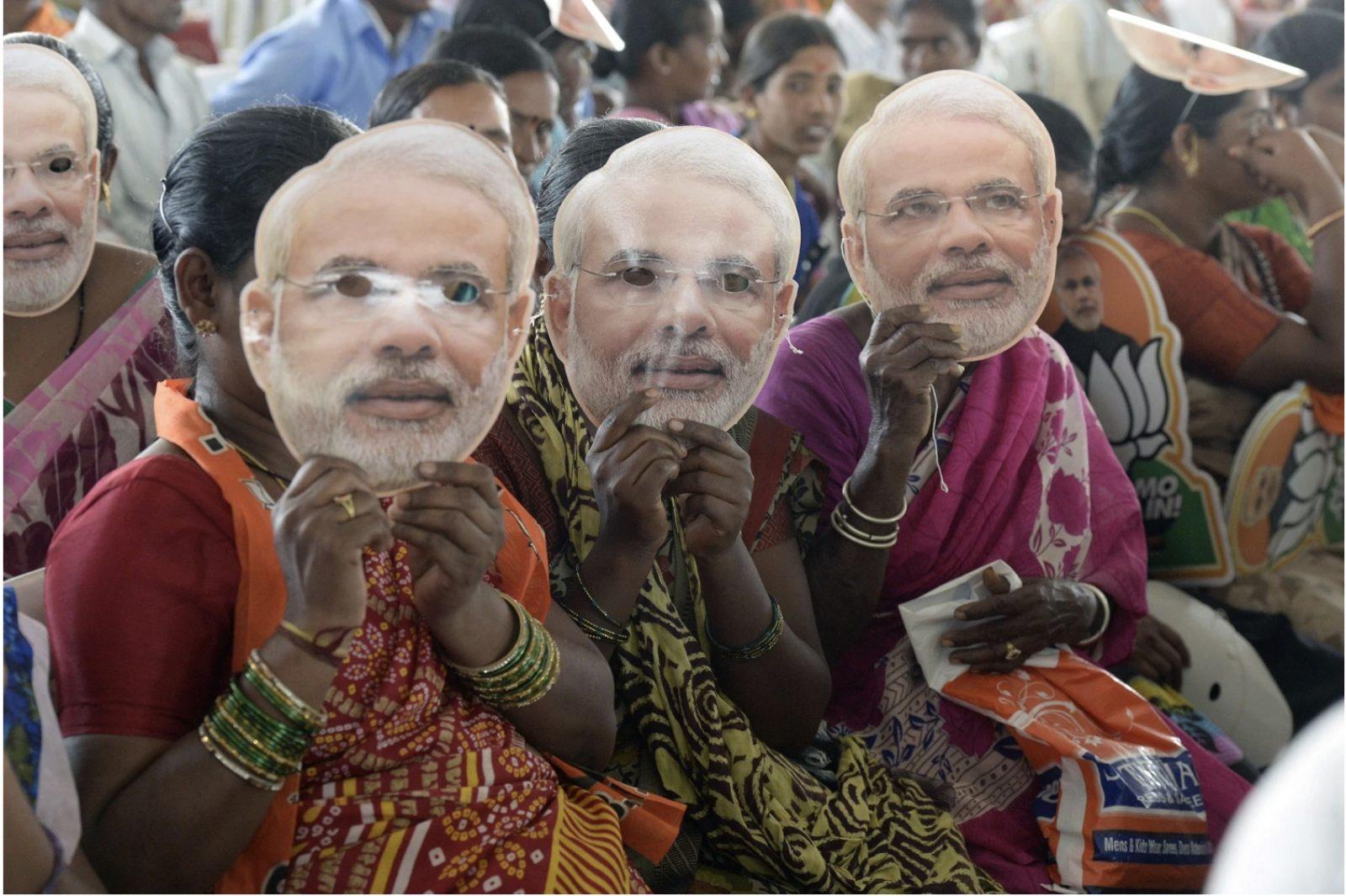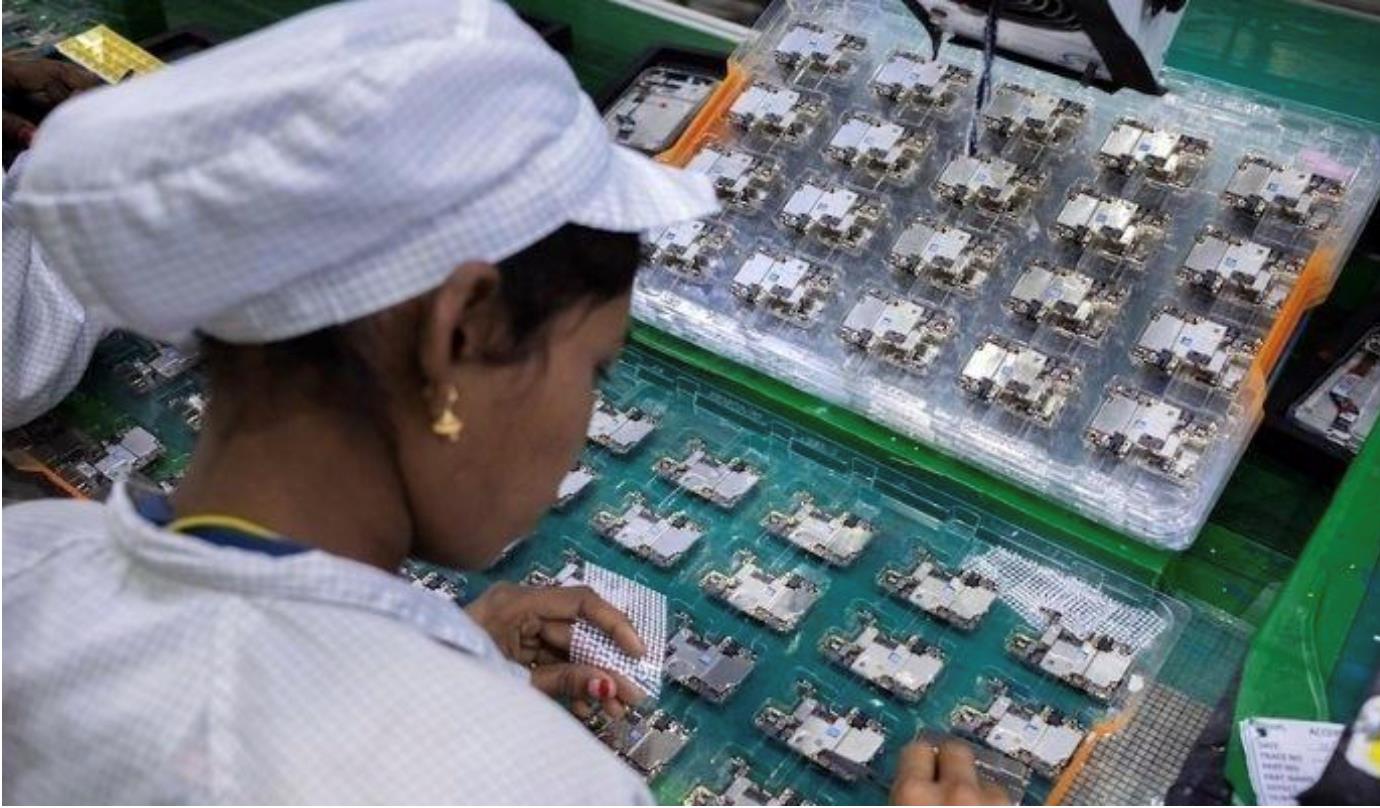(MENAFN- Asia Times)
Vedanta and Foxconn have announced a joint venture to manufacture semiconductors and displays in Prime Minister Narendra Modi's home state of Gujarat, a deal that will put India firmly in the high-stakes chip-making game.
Vedanta is an Indian oil and gas, metals and electric power conglomerate with interests in India and Africa. Foxconn, also called Hon Hai Precision, is Taiwan's and the world's largest Electronics contract manufacturer, best known as the primary assembler of Apple iPhones.
Valued at about US$19.5 billion, the Gujarat project will include Semiconductor manufacturing, assembly and test facilities, as well as a display factory. Vedanta will hold 60% of the venture and Foxconn 40%, with production scheduled to start in two years. About 100,000 people are expected to be employed when the project is up and running.
According to the deal's press release,“The proposed semiconductor manufacturing fab unit will operate on the 28-nm technology nodes and the display manufacturing unit will produce Generation 8 displays catering to small, medium and large applications.”
To be sure, that's not the world's most advanced technology but it's a practical place to start with proven high demand.
If all goes according to plan,“The project will attract electronics ecosystem players across the value chain entailing manufacturers of highly sophisticated and sensitive equipment, materials (high purity gases, chemicals, wafers, photomasks), equipment service providers etc., and will put the state of Gujarat on the global silicon map.”
The project is, in Vedanta's words, is“… a major step towards making India self-sufficient in the critical area of semiconductors and displays in line with Hon. Prime Minister Shri Narendra Modi's bold vision to make India aatmanirbhar in key futuristic technologies…”

Indian women supporting the Bharatiya Janata Party (BJP) wear masks of Prime Minister Narendra Modi at a rally ahead of the national elections in Hyderabad on April 9, 2019. Photo: AFP via Getty / Noah Selam
Aatmanirbhar Bharat –“Self-Reliant India” – is a slogan popularized by Modi in response to the supply chain disruptions caused by Covid-19, including economic and social development programs. In the tech sector, it includes not only semiconductors and displays but chemical inputs, telecom equipment, batteries and other electronics.
It also complements Modi's“Make in India” drive. As noted by Gujarat Chief Minister Shri Bhupendrabhai Patel:“We are determined to make our country more self-sufficient in tech and curb our reliance on imports from other countries.”
On September 13, when Vedanta signed MOUs with the government of Gujarat, Union Minister for Electronics and Information Technology Shri Ashwini Vaishnav said:“The Gujarat plant will go a long way in helping [India] build a $1 trillion digital national economy.”
The Vedanta-Foxconn joint venture is the third semiconductor manufacturing venture to be announced in India so far this year – and by far the largest. In May, the Next Orbit Ventures fund from Dubai and Israel's Tower Semiconductor reached an agreement to build a $3.0 billion facility in the state of Karnataka to produce analog semiconductors.
In June, IGSS Ventures of Singapore reached an agreement with the state of Tamil Nadu to build a $3.2 billion foundry to produce 65-nm, 45-nm and 28-nm semiconductor devices near Chennai. It is also expected to become the core of an ecosystem including circuit design, materials and equipment suppliers, and assembly and test.
In addition, Rajesh Exports, an Indian gold and jewelry company, plans to spend $3 billion to build a display manufacturing facility in Telangana state. When announcing the project in June, Telangana Industries Minister Rama Rao told media that“What was hitherto possible only in Japan, Korea and Taiwan, will now happen in Telangana.”
According to the Indian Electronics and Semiconductor Association (IESA), India's semiconductor market is likely to grow from $27 billion in 2021 to $64 billion in 2026. In comparison, semiconductor sales amounted to $188 billion in China last year and $117 billion in the US. India is almost 20 years behind China in terms of semiconductor market revenues.
It is still far from clear if India can match the explosive growth of the Chinese market over the next 20 years, but if it doesn't, it won't be for lack of trying. Its semiconductor user industries – auto, telecom and data processing industries – are already large and growing rapidly.
In addition, the IESA reports that only 9% of semiconductors used in India were sourced domestically last year, so the potential opportunity for new manufacturing ventures is huge.

India seeks to ramp up its iPhone assembly operations. Image: Twitter
In December 2021, the Indian government launched a $10 billion subsidy program for the semiconductor and display industries. That's less than a fifth of the $52.7 billion provided under the US CHIPS Act, but it is large in comparison with the current size of the Indian market.
Execution risk cannot be ignored, but it appears that India has learned from the failure of previous attempts to build a semiconductor manufacturing industry, which has been blamed largely on excessive bureaucracy. Gujarat reportedly took the investment away from the neighboring state of Maharashtra by means of more attractive tax and energy incentives.
Gujarat Chief Minister Shri Bhupendrabhai Patel said,“This is a huge investment coming on the day when we complete one year in office, which is also a testimony to the policy stability and policy support coupled with good governance & excellent infrastructure facilities existing in Gujarat…The project will be met with red carpet in Gujarat instead of any red-tapism.”
Vedanta already has a presence in the flat-panel display industry through its 51.6% stake in LCD glass substrate maker AvanStrate, which it bought from US private equity fund The Carlyle Group in 2017. Japan's HOYA Corp, one of the company's founders, owns most of the rest. Headquartered in Tokyo, AvanStrate has facilities in South Korea and Taiwan.
Foxconn also assembles iPhones in India and has indicated that it may make more investments in the country. See:“India helping Apple hedge its China iPhone risk”
High-tech collaboration between Japan and India is also advancing through a“strategic partnership” between automotive IC maker Renesas Electronics and the Tata Group. See:“Tata and Japan's Renesas ink tech cooperation deal”
Follow this writer on Twitter: @ScottFo83517667
MENAFN15092022000159011032ID1104868088
Legal Disclaimer:
MENAFN provides the information “as is” without warranty of any kind. We do not accept any responsibility or liability for the accuracy, content, images, videos, licenses, completeness, legality, or reliability of the information contained in this article. If you have any complaints or copyright issues related to this article, kindly contact the provider above.